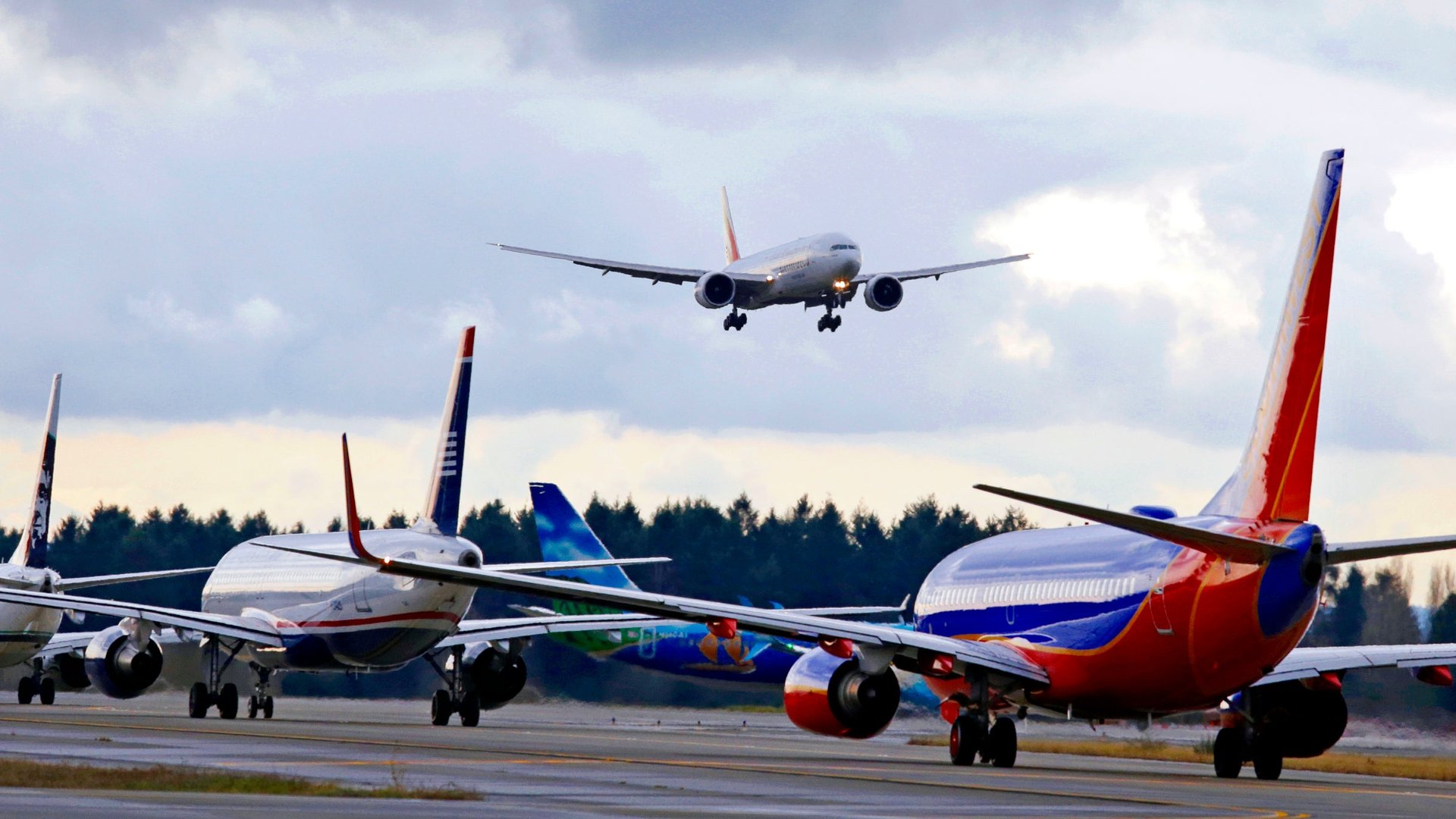A handful of cranky people risk making air travel costlier and more polluting for everyone
Eli Dourado, a researcher at the libertarian Mercatus Center, recently examined the public records of noise complaints for American airports and came to a disturbing conclusion.


Eli Dourado, a researcher at the libertarian Mercatus Center, recently examined the public records of noise complaints for American airports and came to a disturbing conclusion.
“We are letting crazy people make our airport noise policy,” is one way he summarized his findings.
Dourado and his co-author on a new study of airport noise complaints found that most of the calls are coming from a small group of people who are unusually irritated by what they’re hearing, suggesting that costly decisions about noise mitigation—which can ultimately increase the cost of flying—may be driven by the complaints of a select few.
One individual in Monterey Park, California, near Los Angeles International Airport, made 589 calls in June; three callers made up 88% of complaints that month about LAX. At Ronald Reagan National Airport in Washington DC, two individuals at one residence made 78% of the complaints registered in 2015. In Denver, one person who lived 30 miles from the main airport made 73% of complaints in 2015. And in Seattle?
[O]ne individual complains so frequently that her grievances are not transcribed in full but simply tallied at the end of the month. While airport employees provide summaries of other calls, the description of this particular individual’s calls is, “Same complaint over and over. Records a/c flying over.”
These aggrieved citizens may feel justified in reporting their displeasure, but their complaints can produce policies that leave everyone else holding the bag.
According to Dourado, when the Federal Aviation Administration (FAA) makes rules to limit noise—based in part on complaints like these—it can prevent improvements in airport infrastructure, increase the cost of flights, and increase the carbon footprint of air travel.
Lately, the FAA has been working to limit the time spent in holding patterns, using advanced air traffic control software to funnel more planes directly to the airports at slower speeds. This tactic saves fuel, but increases noise. Pushback against efforts like these could make it harder to implement more efficient air traffic policies.
The authors of the study also worry that noise regulations could hinder efforts to bring supersonic aircraft back to the market, though supersonic planes aren’t necessarily more efficient than their slower compatriots. (They haven’t flown commercially since the Concorde was retired in 2003.) More pressingly, the authors fear the complaints could lead to inefficient policy solutions like purchasing land around airports to push residents farther away, or forcing the early retirement of entire fleets of airplanes.
The researchers concede that an objective standard of airport noise is hard to determine, but they worry that, as in so many other urban planning challenges, a vocal minority—in some cases a minority of one—may be preventing government officials from making optimal policy for everyone.